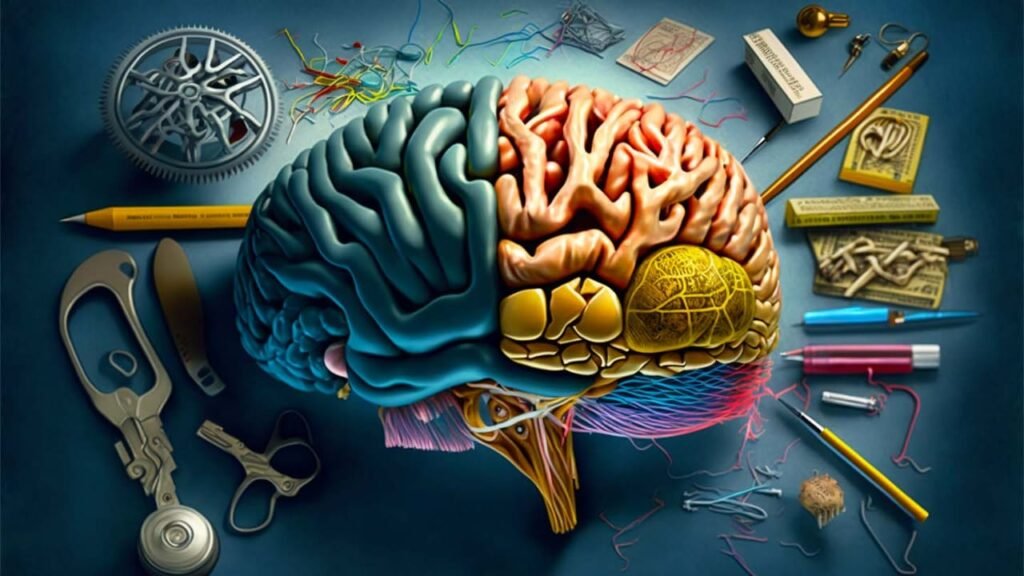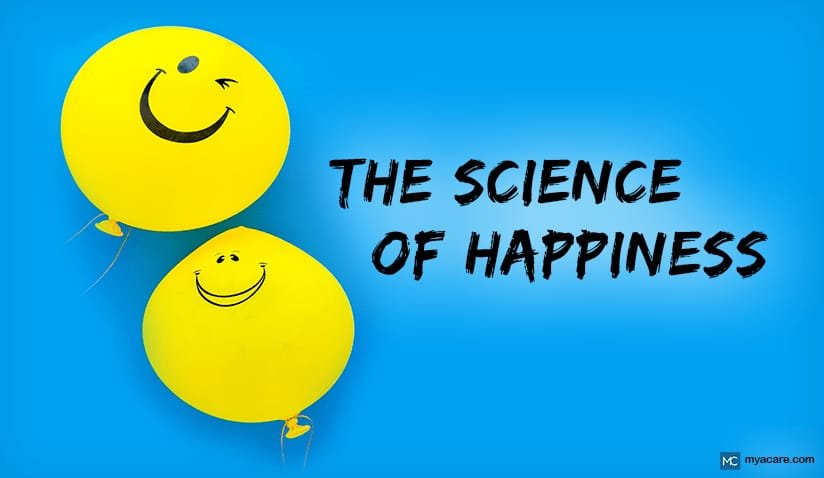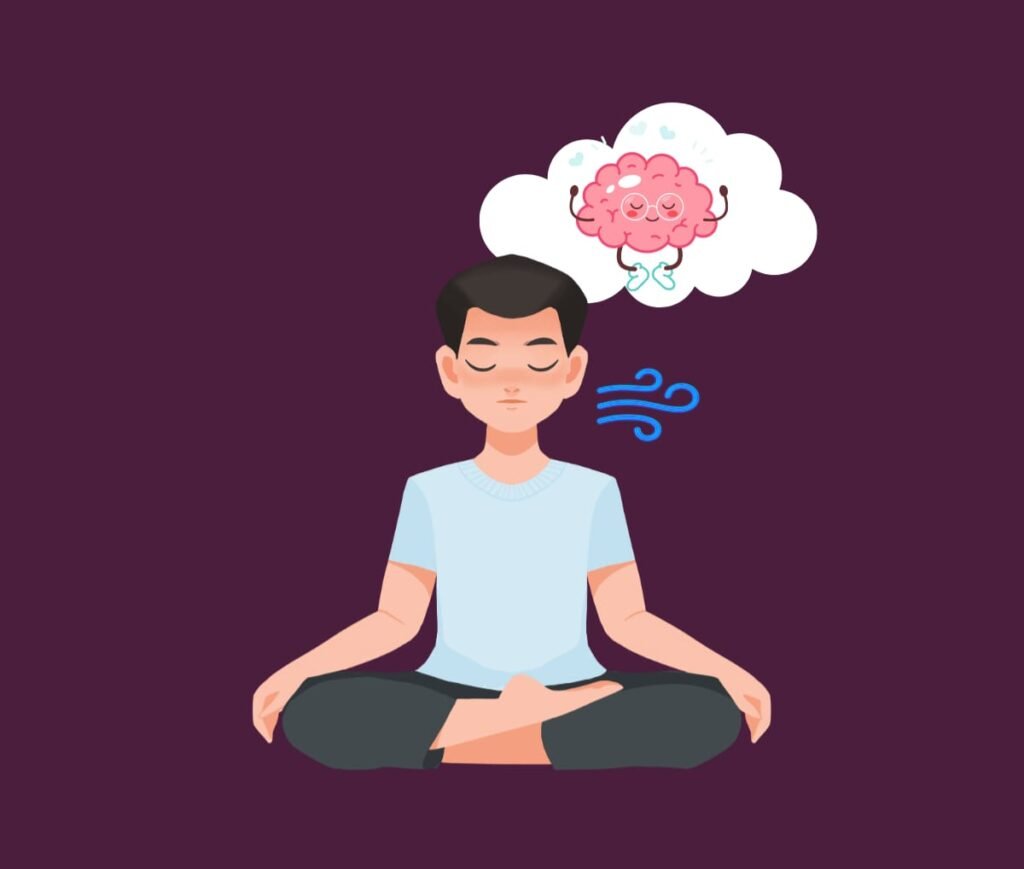Always be happy?

Always be happy?-Happiness is a fundamental goal of human life. No matter what we pursue—whether it’s a thriving career, a loving relationship, or even material possessions—everything ultimately boils down to the desire to feel happy. However, happiness is complex and elusive. What truly makes us happy? Is it wealth, success, relationships, or something deeper and more intrinsic?
In recent decades, the science of happiness has emerged as a legitimate field of study within psychology and neuroscience, providing us with data-driven insights into the mechanisms behind well-being. This blog dives deep into the scientific understanding of happiness, the psychological and biological factors that influence it, and evidence-based practices that help cultivate lasting happiness.
The Brain and Happiness: The Neurochemistry Behind Joy

Happiness isn’t just a feeling; it’s a chemical reaction in the brain. Several neurotransmitters play a critical role in creating the sensation of happiness and pleasure:
- Dopamine is often referred to as the “reward” chemical. It’s released when we achieve a goal or experience something pleasurable, reinforcing behaviors that bring us joy. This neurotransmitter motivates us to continue pursuing activities that lead to rewards, such as completing a project or achieving a fitness goal.
- Serotonin is known as the “mood stabilizer.” It regulates mood, appetite, sleep, and memory, playing a key role in emotional well-being. Low levels of serotonin are linked to depression and anxiety, while healthy levels contribute to feelings of calm and happiness.
- Oxytocin, often called the “love hormone,” is associated with social bonding, trust, and affection. It’s released during physical touch, emotional connection, and positive social interactions, helping to strengthen relationships and foster a sense of belonging.
- Endorphins act as natural painkillers and mood elevators. They are released during exercise, laughter, or even during activities like eating spicy food. Endorphins are part of the body’s response to stress and discomfort, helping to create feelings of pleasure and relaxation.
Understanding the role of these neurotransmitters offers insight into why certain activities, such as exercise, social connection, and goal achievement, have such a positive impact on our mood and well-being.
What Actually Makes Us Happy? The Scientific Perspective

While each person’s happiness is influenced by individual circumstances, research has identified several universal factors that contribute to human happiness. Let’s explore the most significant ones based on scientific evidence.
1. Strong Relationships: The Importance of Social Connection

Humans are social beings, and our relationships play a critical role in our happiness. Numerous studies have shown that strong social connections are one of the most significant predictors of happiness. People with supportive friendships, close family bonds, and strong romantic relationships report higher levels of life satisfaction and better mental health.
The Harvard Study of Adult Development, one of the longest-running studies on human happiness, has followed participants for over 80 years. One of the study’s most significant findings is that the quality of a person’s relationships is the strongest predictor of happiness and longevity. People who maintain close relationships are happier, healthier, and live longer than those who are more isolated.
However, it’s not just about the quantity of relationships, but the quality. Deep, meaningful relationships—ones that are characterized by trust, support, and mutual respect—are much more important than having a large social network.
Practical Takeaway: Invest time and energy in nurturing your relationships. Whether it’s spending quality time with family, reaching out to old friends, or deepening your romantic connection, building stronger bonds will significantly contribute to your happiness.
2. Purpose and Meaning: Living a Life Aligned with Your Values

Having a sense of purpose and meaning is another significant factor in long-term happiness. People who feel that their lives have meaning—whether through work, personal passions, or contributing to their community—experience greater life satisfaction and a more enduring sense of happiness.
This type of happiness is linked to eudaimonia, the idea that living a life aligned with your values and engaging in activities that contribute to personal growth and well-being is more fulfilling than simply chasing pleasurable experiences. In fact, studies show that people who have a clear sense of purpose and direction in life report higher levels of happiness and are better able to cope with life’s challenges.
Purpose doesn’t necessarily mean finding a grand, world-changing mission. It can be as simple as making a positive difference in your family, contributing to your community, or pursuing personal goals that align with your values. The key is to feel like your actions matter and that you’re contributing to something beyond yourself.
Practical Takeaway: Take time to reflect on your values and passions. What activities make you feel fulfilled and purposeful? How can you integrate more of these into your daily life? Whether it’s through career, hobbies, or volunteering, finding ways to live in alignment with your purpose can dramatically improve your happiness.
3. Gratitude: Focusing on What You Have

Gratitude is one of the most powerful and scientifically validated ways to boost happiness. By focusing on what we already have, rather than what we lack, gratitude shifts our mindset towards positivity and contentment.
A study by Robert Emmons, a leading gratitude researcher, found that participants who regularly practiced gratitude reported higher levels of well-being and life satisfaction. They also experienced lower levels of depression and stress.
Gratitude works by shifting our attention from a “scarcity mindset” (focusing on what we don’t have) to an “abundance mindset” (appreciating what we do have). This simple shift can profoundly affect our overall happiness, as it teaches the brain to focus on positive experiences and outcomes.
Practical Takeaway: Start a gratitude journal where you write down three things you’re grateful for each day. This practice will train your mind to recognize and appreciate the positive aspects of your life, increasing your overall sense of happiness and well-being.
4. Acts of Kindness: The Joy of Giving

Kindness and generosity are powerful tools for increasing happiness. Research shows that people who engage in acts of kindness—whether through volunteering, donating, or helping a friend—experience a “helper’s high,” a feeling of joy and satisfaction that comes from doing good for others.
A study conducted by Harvard Business School found that people who spend money on others report greater happiness than those who spend money on themselves. Similarly, another study showed that engaging in regular acts of kindness can reduce stress, improve mood, and even enhance physical health.
When we help others, it activates the brain’s reward center, releasing dopamine and oxytocin, which contribute to feelings of warmth, satisfaction, and connection. Moreover, altruism helps to foster social bonds, which, as mentioned earlier, are key to happiness.
Practical Takeaway: Incorporate small acts of kindness into your daily routine. This could be as simple as complimenting a colleague, helping a neighbor, or donating to a cause you care about. The more you give, the more you’ll receive in terms of happiness and life satisfaction.
5. Flow: Immersing Yourself in the Moment

Flow is a mental state in which you are fully immersed in an activity, losing track of time and feeling completely absorbed in the moment. Psychologist Mihaly Csikszentmihalyi introduced the concept of flow, describing it as the experience of being “in the zone,” where your skills are perfectly matched to the challenge at hand, creating a state of deep concentration and satisfaction.
Activities that induce flow often involve a balance between skill and challenge. If the task is too easy, you’ll get bored; if it’s too hard, you’ll get frustrated. Flow occurs when the challenge is just right, pushing your skills to their limits without overwhelming you.
People who regularly experience flow tend to report higher levels of happiness and life satisfaction. Whether it’s through creative work, sports, or even a challenging project at work, the sense of accomplishment and absorption in the moment contributes to long-term well-being.
Practical Takeaway: Identify activities that help you achieve flow, such as painting, writing, playing a musical instrument, or solving complex problems. Engage in these activities regularly to enhance your sense of happiness and fulfillment.
6. Exercise and Physical Activity: Boosting Mood Through Movement

Physical activity is not only beneficial for your body but also for your mind. Exercise has been shown to release endorphins, the body’s natural mood-boosting chemicals, as well as reduce levels of cortisol, the stress hormone.
Regular exercise has been linked to improved mental health, reduced symptoms of depression and anxiety, and greater overall happiness. A study published in The Lancet found that people who exercise regularly experience fewer “bad days” related to mental health issues compared to those who don’t.
Exercise also improves self-esteem, cognitive function, and sleep—all of which contribute to a happier and healthier life. Importantly, you don’t need to be a marathon runner to reap these benefits. Even moderate physical activity, like walking, yoga, or dancing, can significantly improve your mood and well-being.
Practical Takeaway: Incorporate physical activity into your daily routine. Find an activity you enjoy, whether it’s swimming, cycling, or even just taking a walk in nature. The key is consistency—regular exercise will have lasting positive effects on your happiness and health.
7. Mindfulness and Meditation: Cultivating Presence and Peace

Mindfulness, the practice of being fully present in the moment, is another scientifically backed method for increasing happiness. Numerous studies have shown that mindfulness and meditation reduce stress, improve mood, and enhance overall well-being.
One of the primary benefits of mindfulness is that it helps us detach from negative thought patterns, allowing us to observe our thoughts and emotions without becoming overwhelmed by them. This ability to “step back” from our thoughts creates a sense of calm and perspective, reducing the impact of stress and anxiety on our mental health.
Research from Harvard University has shown that regular meditation can increase the brain’s gray matter, particularly in areas associated with self-awareness, compassion, and introspection. These changes in brain structure are linked to long-term improvements in emotional regulation and happiness.
Practical Takeaway: Start a daily mindfulness practice, even if it’s just for a few minutes. You can begin with simple breathing exercises, guided meditation apps, or mindful walking. Over time, mindfulness will help you stay present, reduce stress, and increase your overall sense of well-being.
8. Healthy Sleep: Recharging for Happiness

Sleep is essential for both physical and mental health. Lack of sleep not only impacts cognitive function and productivity but also has a direct effect on mood and emotional well-being.
Chronic sleep deprivation is associated with higher levels of stress, anxiety, and depression, all of which can significantly reduce happiness. On the flip side, getting adequate, quality sleep has been shown to improve mood, emotional resilience, and overall life satisfaction.
Research from UC Berkeley found that sleep deprivation can amplify negative emotions and make it harder to experience positive emotions, leading to a decreased sense of happiness. Prioritizing sleep is one of the simplest yet most effective ways to boost your happiness and well-being.
Practical Takeaway: Aim for 7-9 hours of quality sleep each night. Establish a regular sleep routine by going to bed and waking up at the same time each day, creating a relaxing bedtime ritual, and avoiding screens and caffeine before bed.
9. Financial Security: Money Matters, But Only to a Point

The relationship between money and happiness is complex. Research shows that while money can contribute to happiness, it only does so up to a certain point. Once basic needs are met—such as housing, food, and healthcare—the impact of additional income on happiness begins to diminish.
A famous study by Daniel Kahneman and Angus Deaton found that emotional well-being increases with income, but only up to about $75,000 per year (depending on location and cost of living). Beyond this threshold, more money doesn’t necessarily lead to greater happiness.
What matters more than income is how you use your money. People who spend money on experiences (such as travel, concerts, or social events) and on others (through gifts or charitable donations) tend to report higher levels of happiness than those who spend primarily on material possessions.
Practical Takeaway: Focus on using your money to create meaningful experiences and strengthen your relationships, rather than accumulating material goods. While financial stability is important, don’t fall into the trap of believing that more money will automatically lead to greater happiness.
Conclusion: The Path to Lasting Happiness
The science of happiness reveals that while external factors like wealth and success can contribute to our well-being, the most important drivers of lasting happiness are internal. Strong relationships, a sense of purpose, gratitude, kindness, mindfulness, and good health are the true pillars of a happy life.
Happiness isn’t a destination; it’s a journey. By understanding the factors that contribute to happiness and incorporating evidence-based practices into your daily life, you can cultivate a deeper, more enduring sense of joy and fulfillment. Remember, happiness is not something you achieve once and for all—it’s a habit that you can build over time.
In the words of Aristotle, “Happiness depends upon ourselves.”
THIS BLOG ONLY HAS ONE PURPOSE – TO MAKE ALL THE READERS HAPPY………FOREVER!

For BUYING KITCHEN UTENSILS-CLICK HERE
Follow Our Youtube Channel-CLICK HERE
FOLLOW OUR FACEBOOK PAGE-CLICK HERE
FOLLOW OUR FACEBOOK GROUP-CLICK HERE